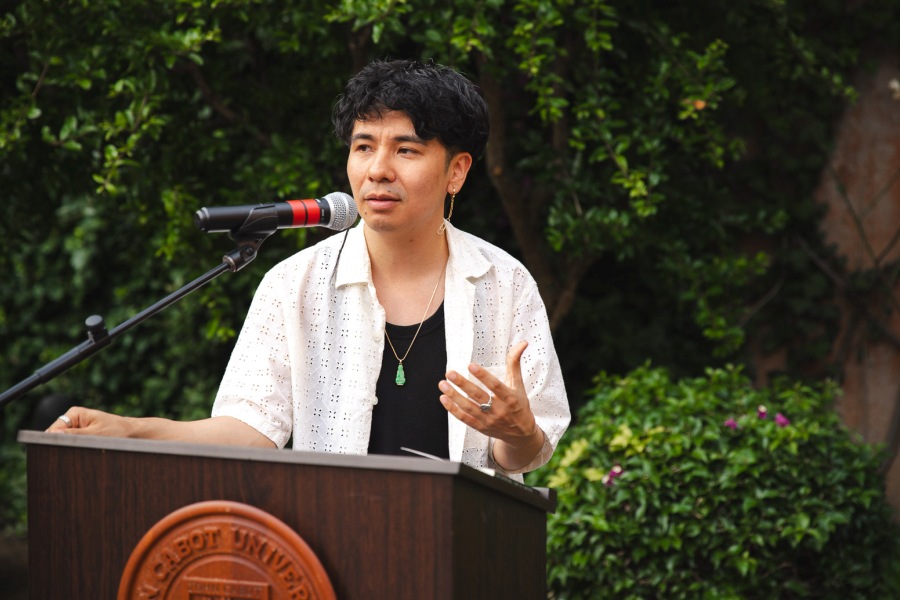Machine vs Human Creativity: JCU Chess Club Welcomes Grandmaster Jan Sprenger
The JCU Chess Club, together with the Department of History and Humanities, welcomed Jan Sprenger for the lecture “Chess and Human Creativity in the Machine Age” on Friday, February 22, 2018. Jan Sprenger is a Grandmaster and Professor of Philosophy of Science at the University of Turin.
Professor Sprenger’s main research area is Philosophy of Science. He focuses on statistical inference, scientific objectivity, and formal models of explanation and causation. He is currently working on “Making Scientific Inferences More Objective,” a project funded by the European Research Council (ERC).
According to Professor Sprenger, chess can be viewed as art, science, and fight. It can be considered as an art form thanks to the aesthetic elements of the game. Just like a painter, the chess player uses creativity to excel in his or her craft. This way, a creative move will lead to a feeling of amazement similar to one provoked by a beautiful painting. Chess is also a science because its laws of strategy are similar to the ones of physics; nothing happens by chance. Lastly, chess is a fight because there is a conflict between two minds and the game as a whole deals with matters of honor. The gambit move is an example of this, where the player sacrifices one piece to achieve better strategic results later in the game.
After introducing the audience to the basics of chess, Professor Sprenger talked about the effect technology has on the game. He mentioned the chess engine AlphaZero, which uses algorithms to function. The machine learns from past experience and evaluates moves based on their success rates. Professor Sprenger analyzed a position during a 100-game match between AlphaZero and Stockfish, the highest-rated chess engine. AlphaZero won the match without losing a single game. Professor Sprenger also did position analysis from world championship matches between Grandmasters such as Mikhail Botvinnik and Mikhail Tal.
The lecture underlined the skepticism surrounding human creativity in today’s machine-dominated world. “Despite the impact of technology, the aim should be to rediscover creativity through chess,” Professor Sprenger argued. He believes that competition between humans and artificial intelligence has become pointless due to machines’ superiority. Instead, players should benefit from chess engines’ strength to practice and improve their own skills while exercising creativity.






